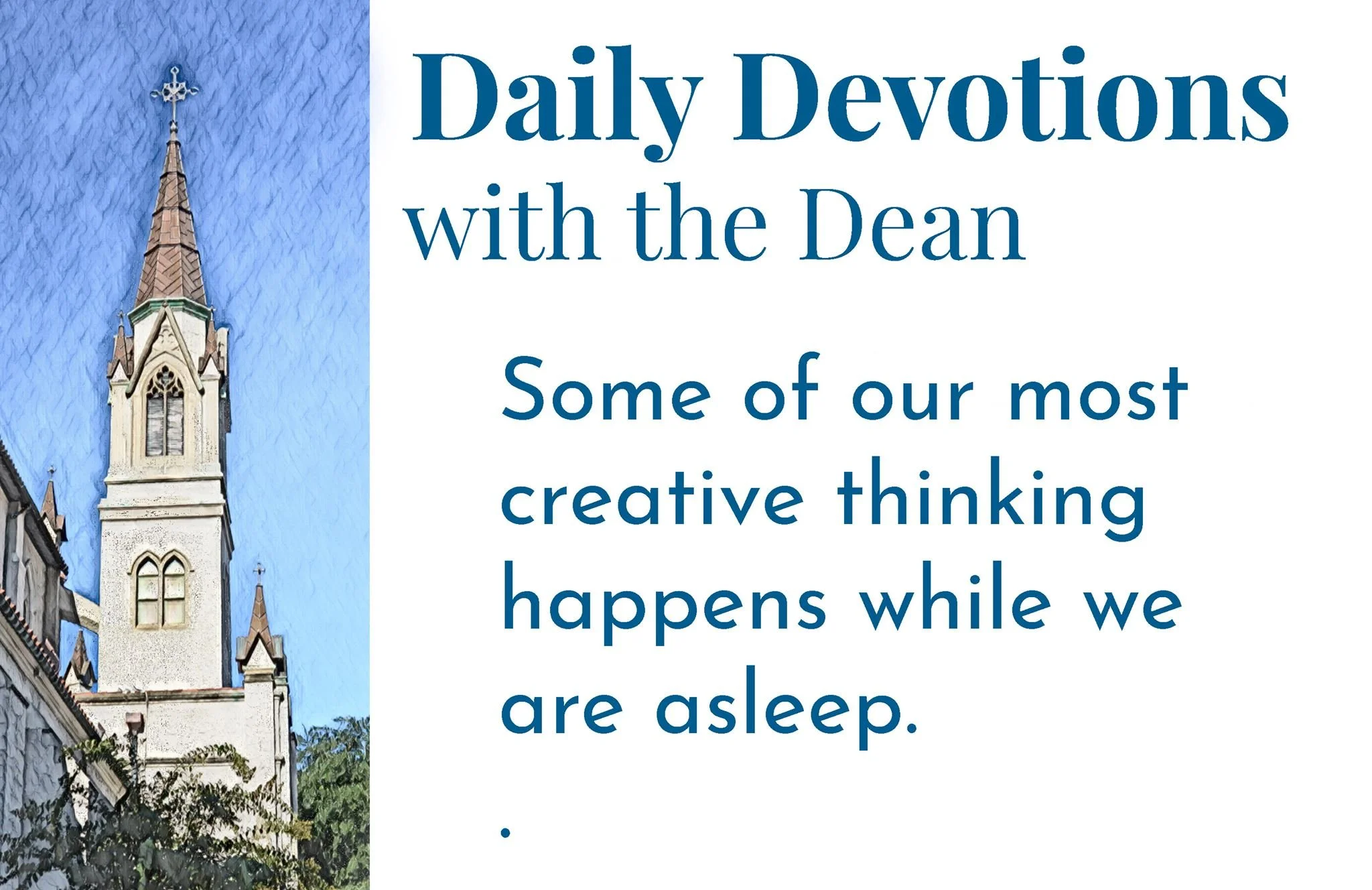Thursday • 7/27/2023
This week we are taking a detour from the Daily Office readings. Instead, we are thinking through various facets of worship and how our Lord provides meaningful communion with him through our formal corporate worship as well as in individual worship in our daily devotions. The thoughts offered here are excerpts from articles I wrote for Worship Leader magazine a few years ago.
“Self-stewarding in a Multiplicity World”
“Sir, do you realize you were going 26 in a 15-mile-an-hour school zone?” asked the police officer as he approached my car. Then, as he started to write my ticket, he added an almost gleeful, “Oh, and you can put your cell phone away.”
I knew the speed limit was 25, which is how fast I thought I was going. What I had missed—because I was more present to my phone call than to my driving—were the signs with the blinking yellow lights. Those lights changed the speed limit to 15 mph when children were leaving school.
Lesson: You really can only think about one thing at a time. According to molecular biologist Dr. John Medina in Brain Rules, our brains are wired that way. Spiritual corollary: multitasking is a myth. Our new media can extend our reach, but they cannot “disincarnate” us.
Seduction and Captivity
At the turn of the 20th century, sociologist Max Weber worried that people in the modern world had trapped themselves in an “iron cage.” Christianity had taught them to be productive. Capitalism had made their work profitable. But Christian belief was gone—in his opinion, at least. People were left with nothing but the technology they had created and the standard of living it had taught them to crave. Trapped.
A hundred years later, we find ourselves stewards of an awesome new array of tools for connecting God’s people with one another and for aiding their adoration of the Lord of life. Lest we become trapped in a new iron cage, Christ’s followers need disciplines of the heart that make the new media our servants, rather than us theirs.
Embodying Faithful Ministry
As of this writing, I’ve been an “online minister” for two years. With all the busyness of the screen—the live streaming, the myriad “chats” going on, the scrolling avatars of logged-in worshipers, the world map with locations of worshipers—it’s astounding that worshipers can worship. But worship they do. I am grateful these brothers and sisters bring so much of themselves into our “virtual” worship space.
I’ve discovered, though, that to do my job of hosting people’s worship, I have to make a conscious decision not to “leave” the service to check email, Facebook, Twitter, Yahoo sports, or nytimes.com.
What’s been helping me to avoid “disincarnation” is a new mediation of two ancient disciplines: fasting and Sabbath-keeping.
Hunger Is good.
Fasting makes you hungry. They say it makes you smarter. I know that an edge of hunger made my black lab, Lipton, unbelievably motivated in the obedience ring. But fasting doesn’t always have to be about food. I went out to dinner recently with a group of friends. I was fascinated to observe how many people in the restaurant—many obviously there on dates—were having a far more intimate relationship with their cell phone than with the person they were with. When I temporarily deprive myself of tools of connectivity and efficiency, I give my inner being an appetite for the relationships the tools are designed to enhance in the first place.
Rest Is good.
Some of our most creative thinking happens while we’re asleep. Really. That’s why we wake up sometimes with the perfect repartee for the conversation we had yesterday. We are hardwired to have a rhythm of work and rest. Rest restores. Sabbath recreates. So, I’ve been learning not to start the day checking email or my Facebook news feed, but with devotions. I’ve been schooling myself not to let my total existence be defined by the demand to respond to every call, text, chat, email at the moment it comes in, but by the enjoyment of a deep relationship with Jesus that requires seasons of rest. Naps. Meditation. Prayer. Simple conversation. Worship. Retreats. One day in seven for the important stuff besides work. Unplugged Sabbaths give me more to offer when I plug back in.
What Michael Keaton’s character Doug Kinney learns in the movie Multiplicity is true for all of us. There is only one of us. An excarnate life—a cloned presence elsewhere—is a losing proposition. So we have to steward ourselves as best we can in the one place we can be at any given moment.
Be blessed this day,
Reggie Kidd+



